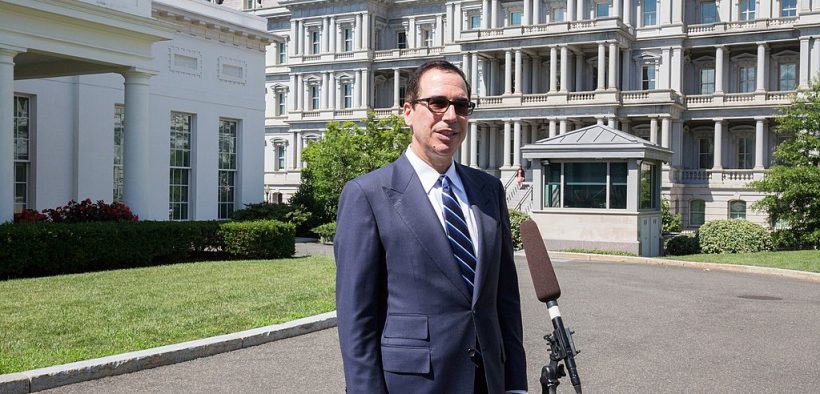Trump’s Cabinet Already Has More Ex-Lobbyists Than Obama Or Bush

“An administration staffed by former industry lobbyists will almost certainly favor industry over the general public.”
In less than three years, President Trump has assigned more former lobbyists to Cabinet-level positions than former Presidents Obama and Bush did in two full terms, according to a new report from the Associated Press.
The news comes in contrast to the president’s vows to “drain the swamp” during the 2016 campaign. Shortly after Trump picked former Raytheon lobbyist Mark Esper to oversee the Defense Department, the president boasted of cleaning the federal government:
“We stared down the unholy alliance of lobbyists and donors and special interests, who made a living bleeding our country dry. That’s what we’ve done.”
Beyond Esper, who has refused to commit to recusing himself from decisions involving Raytheon while overseeing the Defense Department, are legions of ex-lobbyists regulating the industries they used to work for in the Trump administration’s revolving door. Former acting Defense Secretary Patrick Shanahan was a Boeing executive, and the Defense Secretary before him, Gen. James Mattis, quickly rejoined the board of General Dynamics after leaving the Trump administration.
In November 2018, the Project on Government Oversight (POGO) released an analysis of the Trump administration’s defense sector, finding 645 instances of federal employees working for the top 20 Pentagon contractors in fiscal year 2016.
Critics argue that having foreign policy decisions made by people deeply tied to defense contractors, which are reliant on government contracts, incentivizes militarism and geopolitical instability. For example, The Wall Street Journal revealed last September that then-Assistant Secretary of State Charles Faulkner, another former Raytheon lobbyist, convinced Secretary of State Mike Pompeo to continue U.S. support for the Saudi coalition for the sake of a $2 billion dollar deal with his former employer. Faulkner later stepped down amid scrutiny from the report.
The example shows how corporate lobbyists can poison democracy by using taxpayer funds to support special interests even when their policies are in direct contrast to the public will. Lawmakers passed a bipartisan resolution to end US support for the humanitarian catastrophe in Yemen, but the White House vetoed it.
Filling the Swamp With Lobbyists
Another clear example is environmental policy, where Trump has picked fossil fuel lobbyists Andrew Wheeler and David Bernhardt to lead the Environmental Protection Agency and the Interior Department. The ex-lobbyists have been widely criticized for using their positions to push the interests of fossil fuel corporations over public well-being. They have gutted their departments of scientists, refused to regulate dangerous chemicals, and even said they “have Monsanto’s back” on glyphosate, a likely-carcinogenic chemical found in the RoundUp weed killer.
In the Department of Agriculture, multiple former Dow chemical employees oversee agricultural policy, such as former Dow lobbyist Ted McKinney, the USDA undersecretary for trade, Ken Isley, the head of the Foreign Agricultural Service, and Scott Hutchins, a deputy undersecretary at the USDA. Trump has also nominated a former Monsanto executive to oversee the Fish and Wildlife Service.
Health and Human Services Secretary Alex Azar is a former pharmaceutical lobbyist and was CEO of Eli Lilly when the company raised drug prices and doubled the price of its insulin.
Trump’s Treasury Secretary Steve Mnuchin formerly worked for Goldman Sachs and has been broadly criticized for abusive and fraudulent practices during his time as CEO of mortgage lender OneWest.
The acting head of the Labor Department, Patrick Pizzella, and nominated secretary Eugene Scalia, are both corporate ex-lobbyists. Both have been deeply criticized for their anti-labor history.
“An administration staffed by former industry lobbyists will almost certainly favor industry over the general public, because that’s the outlook they’re bringing to the job,” Lee Drutman, a senior fellow in the political reform program at the think tank New America, told the Washington Post.












There’s a word it: corruption.